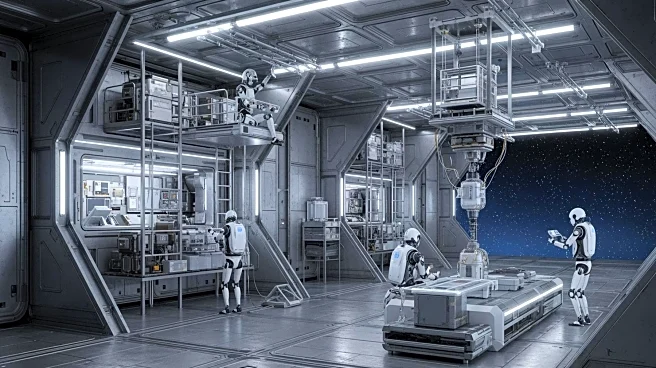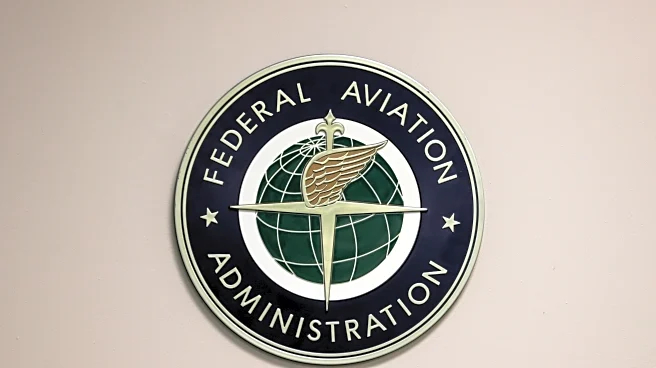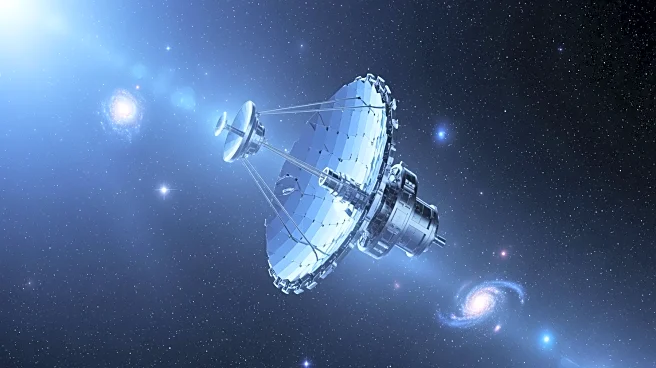What's Happening?
Jeff Bezos, founder of Amazon and Blue Origin, predicts a future where millions of people will live in space by 2045, facilitated by advancements in artificial intelligence and interplanetary travel. Speaking
at Italian Tech Week 2025, Bezos expressed optimism about the next two decades, envisioning a 'golden age' where humans are happier, richer, and working fewer hours. He anticipates that robots will handle mundane tasks, including commuting, and that many offices will be located off-planet. Bezos believes that lunar and planetary work will be performed by machines, making space living more accessible and cost-effective.
Why It's Important?
Bezos's vision reflects the growing interest in space colonization and the role of technology in transforming human lifestyles. If realized, this future could significantly impact industries such as aerospace, robotics, and AI, driving innovation and creating new economic opportunities. The prospect of living in space challenges traditional notions of work and habitation, potentially leading to shifts in societal structures and priorities. However, the feasibility of such a vision depends on overcoming technical, financial, and ethical challenges associated with space exploration and AI deployment.
Beyond the Headlines
Bezos's predictions highlight the ethical considerations of AI and space colonization, including the potential for mass unemployment and loss of human control. While some experts warn of existential risks, others see AI as a tool for enhancing human capabilities and improving quality of life. The debate over space colonization also raises questions about resource allocation and environmental stewardship, as figures like Bill Gates advocate for addressing Earth's challenges before expanding into space. These discussions will shape future policy and public perception of technological advancements.











